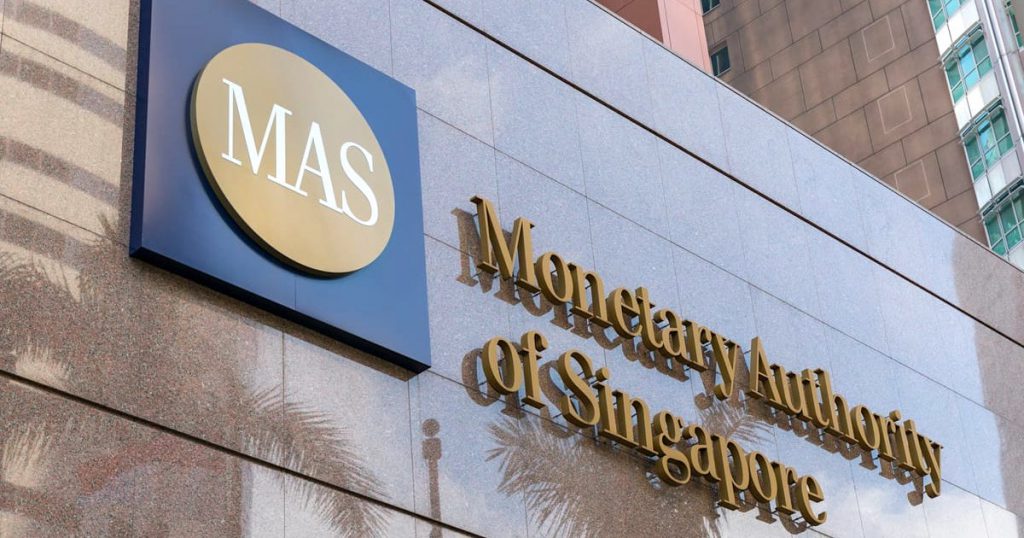More than cold brew: How award-winning barista of S’pore’s Kopiboy sells 4.5K bottles/month

The urge to drink decent coffee during the Circuit Breaker last year led a group of friends to set up coffee delivery startup Kopiboy.
Just under two years old, the business has grown to sell around 120 to 150 bottles of beverages a day, or about 4,500 bottles a month. Kopiboy, which used to operate out of a home, has since moved to a central facility due to it outgrowing the original space.
But these people aren’t just novices who wanted to start something. The brainchild behind the business is 37-year-old Ahmad Hidayat – nicknamed “Dayat” who has more than 16 years in coffee operations and production.
He is a professional barista and a licensed Q Grader, which is a licence awarded to candidates who undergo a very thorough examination and training course by the Coffee Quality Institute. The candidates emerge to become certified coffee graders who can evaluate the physical and sensory attributes of a coffee.
Not only is Dayat a certified coffee expert, he has also participated in multiple coffee competitions and has clinched awards.

From 2016 to 2018, Dayat won First Runner Up for the Singapore National Barista Championship. He has also participated in other competitions and emerged as First Runner Up for the Singapore Brewers Cup Competition in 2015 and the SEA Coffee Siphon Competition in 2014.
The Kopiboy team is run by Dayat, head of marketing and business development “Sya”, operations lead “Azee”, and planning manager “Mizi”.
They just wanted some decent coffee during Circuit Breaker
Kopiboy started at the peak of the pandemic in early 2020.
“When cafes and restaurants were closed, we as coffee lovers found it hard to get any decent coffee around. At first we started brewing cold brews for ourselves, family and neighbours. Soon it spread through word of mouth and we didn’t realise that we had gained quite a fair bit of popularity,” said Dayat.
Through referrals and social media posts, the business started getting a steady stream of orders and its customer base grew. “We saw a sudden surge of orders because one of our neighbours had posted about us. Little did we know that she was a mom influencer and had shared our beverages on her page which kicked us off.”
The group’s decision to name the business Kopiboy was because they wanted it to be uniquely Singaporean. The word “Kopi” is an Indonesian and Malay term for coffee, but in Singapore it is a normal slang used by all races to order coffee beverages.

The Muslim-owned business’ ingredients are halal-certified, said Dayat.
“We wanted it to be a truly Singaporean and friendly brand. Most specialty coffee brands have a particular branding to them that sometimes shy away first time or occasional coffee drinkers because of the coffee names or that the offerings may be too intimidating for them.”
“We want to make coffee approachable, affordable and friendly for everyone! Be it the coffee aficionados or first time coffee drinkers. This speaks for itself with our easy to drink coffee blends and creations,” Dayat explained.
How to make good coffee?
There’s no secret recipe or secret formula to make good coffee, according to Dayat.
“It’s all about the freshness of the coffee beans and years of experience brewing consistently good coffees.”
Kopiboy uses different beans and grinds for different brews. Some of its best selling flavours include the Authentic Kopi, Sinfully Dark Mocha, Roasted Hazelnut Latte, and Smooth Latte. The business owners claim that the coffee is “relatively affordable”, with prices starting from S$5 for a 300ml bottle.
The e-commerce website also sells baked goodies to accompany the coffee drinks, like Tiramisu Cakes, Dark Chocolate and Hazelnut Cookies, and Fudgey Brownies.
There are also non-coffee beverages, like Earl Grey Milk Tea and Forrest Berries Iced Tea.
From home-based biz to factory shop space
Kopiboy started as a home-based business but due to the quick rise in orders in this period, it has since moved to a central facility that is currently functioning as an online cafe.
“We sell about 120-150 bottles a day, excluding corporate and group buys,” Dayat said.
“Because we’re a small business, we run daily operations with a minimum of three employees. This is why we are able to keep our prices affordable.”

The brand logo and design concept came from Dayat and Sya. “We wanted it to be minimalistic yet friendly and approachable. Hence we played around with soft colours and simple layout,” said Dayat.
Kopiboy accepts 20 to 25 delivery locations every weekday and orders are closed once it hits that quota.
As for weekends, it’s more flexible with the amount of orders it accepts. “We have an in-house vehicle and driver who does islandwide deliveries allowing us to keep the delivery expenses to a minimum.”
Free islandwide delivery is given to orders more than S$25. The food products are also available at Shopee Mall and foodpanda.
Covid-19 both a boon and bane to biz
When asked if the pandemic has helped the business, Dayat said that there have been both benefits and disadvantages.
“Since many are working from home, it has benefitted us in a way that our offerings are convenient in meeting the needs of these people who look for ready-to-drink coffee that can be stored for the week.”

However, the pandemic has definitely hindered the business from expanding into brick and mortar stores.
“We’re an online cafe so the biggest limitation is definitely the visual and immediate gratification you get when you run a cafe. The way we go around that is to constantly innovate to stay relevant. We have to stay creative in order to stay in the business.”
Innovation an important part of the business
Kopiboy wants to be known for its innovative and out-of-the-box offerings, said Dayat, and it proves to be so with over 30 concocted beverage offerings on its website.
“Being very big foodies we are constantly thinking of what to eat next, what to drink next, what to try next. That’s how most of our offerings come about – they are a product of our cravings.”
Knowing that the pandemic has made it harder for people to meet and hang out, the business also sells care packs and gift sets from S$25. These packs usually contain two to three drinks and two snacks – cakes and biscuits – and many customers buy them for friends and family usually for birthdays and special occasions.
For now, Kopiboy has no plans to scale up quickly. It prefers to focus on the content and improve the brand that has been built. “The goal is to do more than just coffee. We want to build a community and foster the relationships we’ve built with our Kopi Gang!”
Dayat acknowledges that the volatile and saturated coffee market means that many similar firms do come and go. However, he and his team want Kopiboy to be a sustainable business.
“We’re here to create a community for our consumers – not just to sell in the short run.”
Featured Image Credit: Kopiboy
VP Label puts together all the best local products for you to discover in one place. Join us in supporting homegrown Singaporean brands:
[iframe_vp_product src="https://vulcanpost.com/label/embed-all/" id="iframe1"]
Also Read: She’s lactose intolerant, so she developed her own plant-based almond milk brand in S’pore
From struggling plant mum to running a M’sian succulent delivery that’s now 4 years old

Despite how easy the care for cacti and succulents is supposed to be, I’ve never been able to keep them alive. My biggest blunder likely came from overwatering them and keeping the plants in a room that’s exposed to little sunlight.
As a beginner plant parent, it was a common mistake CarrieAnne made too.
She would often find a succulent sitting on her desk whenever she came home from her travels, gifted by her landlady. Though she gave the fleshy little plants lots of love, she still struggled to keep them alive.
“There were quite a handful of casualties and I was really frustrated because I had no idea what I did wrong,” she told Vulcan Post.
Determined to change the fate of her succulents, she confided in her landlady who shared a couple of tips with her, and did her own research to learn more.
As her collection grew, so did her experience and insights. That gave CarrieAnne great confidence in caring for them, enough to eventually launch Dóro, an online gift shop specialising in succulent arrangements.
A virtual plant business since day 1
Dóro started with a capital of about RM20K, bootstrapped between her and her partners from their own savings. The website’s development and photoshoot for the products were all carried out during a 4-day long Merdeka weekend in 2017.
Since then, they’ve been operating solely online and launched a sister brand, Bloomspace, all without a storefront besides the occasional participation in bazaars pre-pandemic. “We have always focused on online retail as we strongly believe in the potential in e-commerce,” said CarrieAnne.
While it’s commonplace for businesses to operate exclusively online since the pandemic hit, solely being an e-commerce brand in 2017 would’ve been challenging. People would have wanted to browse the plants in person before making a purchase, so it’s likely that Dóro’s presence in bazaars pre-pandemic helped with building its reputation online too.

During the MCO, it’s also become commonplace for customers to go online for items they usually would buy in person, such as groceries and skincare. Dóro similarly saw an uptick in their sales, especially from first-time house plant shoppers as more people were trying out new hobbies like gardening.
While the brand couldn’t share any specifics, Dóro revealed that it’s able to sell over a thousand potted plants and succulents each month. They’ve also supplied their arrangements to clients including multinational corporations, private fashion brands, local companies, and royalty.
Like nature, there came some rapid changes
One of the major changes CarrieAnne recalls over the 4 years of operations was during the end of 2018 when one of Dóro’s partners decided to move on to pursue other interests.
At that time, Dóro was still home based and CarrieAnne had recently given birth to a son, making it difficult to run the business while caring for her newborn. The founders quickly decided to build a team to take over the day-to-day operations at Dóro, and subsequently moved to a larger office.

In 2020, the team launched Bloomspace to sell readily potted house plants, shipping them throughout Peninsular Malaysia. It seemed to be a natural expansion for the brand, seeing that its aim is centred around gifting in the form of plants.
[Business] certainly is not smooth sailing all the way, whereby the growth varies from year to year, especially so when we launch new products—in the case of Bloomspace, a completely new brand. But Bloomspace has grown fairly quickly over the past 1 year, and today contributes a significant portion of our revenue.
CarrieAnne, co-founder of Dóro.
A plant made for gifting
To CarrieAnne, what makes succulents special is how there are over ten thousand species of the plant that come in a large variety of colours, textures, and characters.
“They are stunning and unique. Their colour intensity changes with the amount of light received, that itself is an element of surprise,” she expressed.
A bright environment is necessary when it comes to growing a succulent. As they thrive on neglect, not much care is required if they’re getting sufficient sunlight. Even watering is only required once every few weeks, which makes them a great option for busy caretakers, according to CarrieAnne.
Plenty of care goes into selecting healthy succulents for the arrangements, and the team of 6 also pays attention to the minute details such as the succulent’s colours, texture, and build, along with how it’s packaged and presented.

Hence, it can take the team around 30-45 minutes each to complete one piece of the brand’s Dóro Life arrangement (RM169). Roughly, each team member is able to create 10-20 pieces per day.
It’s likely that customers appreciate the level of care put into the products too, as they’d often share unboxing videos of the succulents on their social media.
“Just knowing that every gift that we send out plays an important part in someone’s day, gives me a sense of fulfilment and purpose, even until today,” chimed CarrieAnne.
When asked if she ever plans on opening a physical nursery for customers to browse and visit, CarrieAnne shared that they are adamant about maintaining the e-commerce model.
What they do plan on doing, however, is refreshing the range of products that Dóro offers, because even though Dóro Life is their flagship product, the team wants to further challenge themselves to create better gifts.
-//-
While the brand faces plenty of contenders in the space of online plant delivery businesses, most of them tend to generally sell succulents as standalone potted plants.
Therefore, it could be said that the succulent arrangements that Dóro specialises in stand out as more of a niche, and the startup likely has found its own place in the gifting market, if its years of operations thus far are anything to go by.
Also Read: 9 facts about personal loans in M’sia you should know to borrow responsibly in a pandemic
Featured Image Credit: CarrieAnne, founder of Dóro
MAS’ Research Talent Development Grant increased up to S$6,000 per month for two years

Last Friday’s (September 17) announcement that Temasek is going to pour S$1.5 billion into companies looking to list on Singaporean stock exchange dominated the news, casting a shadow over another interesting development that was reported at the same time — which may be of far greater interest to Singaporeans working, or who have graduated in financial research.
The Monetary Authority of Singapore (MAS) has expanded its Research Talent Development Grant and will now reimburse participating employers up to S$6,000 per month for two years (one year for Singapore PRs) for eligible, experienced candidates (who have been unemployed for at least three months); and up to S$4,200 for fresh graduates.

This is a significant amendment, upping the limit from S$5,000 and just one year previously. Employment of fresh graduates is supported up to 70 per cent of their salary, while for the experienced ones, it is capped at 50 per cent.

In other words, talented university graduates can expect to earn up to S$6,000 per month; and those with at least five years of experience but currently struggling to find employment, up to S$12,000, largely supported by MAS for a full two years.
These conditions are valid until the end of 2023, so it’s a good chance for professionals experienced in financial research, who have faced headwinds during the pandemic, as well as graduates looking for career prospects, to receive a boost by the grant.
It greatly reduces their employment costs and supports their job for a long enough time for them to achieve (or regain) stability.
More support for growing companies
In another change in the GEMS (Grant for Equity Market Singapore) Scheme that the employment grant is a part of, companies seeking to get listed on SGX are eligible to up to 70 per cent in listing expenses, capped at S$2 million for companies above S$1 billion valuation and S$1 million for smaller enterprises.
This is a part of a broader effort announced on Friday, attempting to reinvigorate the domestic stock market, with a primary focus on younger, high-growth, often “startup” companies, seeking to raise money through public offerings — but often choosing to do it overseas, even if their base is in Singapore.
In addition to the grants offered by MAS and the money pledged by Temasek, SGX itself is offering the fourth pillar of support: a strategic partnership.
Participating companies will receive access to a broader pool of investors — potentially expanding their fundraising efforts — as well as marketing support and secondary market fundraising post-IPO from SGX (over the last five years, SGX-listed companies raised four times more funds in the secondary market than at IPO).
Given the uncertainty about the future of Hong Kong, Singapore is hoping to attract greater attention to its stock market, which — for all the city-state’s prowess in financial services — remains relatively small. Providing significant funding, support for employment and reduction in formal or other bureaucratic obstacles, is meant to help SGX climb in the global hierarchy of the equity markets.
Featured Image Credit: PYMNTS
VP Label puts together all the best local products for you to discover in one place. Join us in supporting homegrown Singaporean brands:
[iframe_vp_product src="https://vulcanpost.com/label/embed-all/" id="iframe1"]
Also Read: How Grab took advantage of COVID-19 to launch new services & achieved record-breaking revenue
7 months after launch, this KL cheese platter biz was already nearing a 6-figure revenue

Starting a cheese platter business is a venture Jessy Chahal has wanted to take on since giving birth to her second child in 2018. With a background as a Senior TV Anchor at BERNAMA and founder of a boutique media agency, she’s also dabbled in the F&B space via a restaurant cum cocktail bar, Elephant Rock TTDI.
Clearly, her schedule never permitted the time to start yet another business alone.
“Cheese Platter KL (CPKL) would become an idea that sat dormant for about a year. To ensure this would be reality someday, I created an Instagram account which was a form of commitment, I guess,” Jessy recalled.
Then MCO1.0 came around, and it was her opportunity to start. So, she roped in her homemaker friends, Harpreet Kaur and Jasveen Bariar. With a capital of RM1,000, the trio eventually launched the business together to provide customers with affordable bespoke cheese platters.
Within 7 months of launching in December 2020, CPKL reached profitability and was generating revenue of nearly six figures.
Editor’s Update: The above paragraph originally misreported that the 6-figure sum was profit based on information provided by the interviewee. It has now been edited for clarity that the sum mentioned is not profit, but revenue.
A crowded plate
To keep prices affordable for the end customer, CPKL sources ingredients and condiments directly from suppliers. CPKL’s cheese platters range from RM100-RM490 depending on the serving size chosen, meant for 1-2 pax to 10-15 pax.

However, when scouring online for other cheese platter sellers, I found that CPKL’s prices aren’t actually the cheapest. For example, Platters KL has options that cost as low as RM34 for its 1 pax offering, and RM74 for 2 pax, while its largest and most costly platter at RM175 feeds 5-6.
Meanwhile, KEJU by Carmen has more or less the same pricing range as CPKL, with prices ranging from RM100-RM590 for various sizes.
Of course, it is worth noting that Platters KL’s boxes appear significantly smaller in size, with fewer accompaniments offered with the cheeses and cold cuts compared to CPKL’s.
KEJU by Carmen would be a closer competitor, and for both businesses’ prices, it’s safe to conclude that the market price for cheese platters averages within the RM100-RM500 range.
It’s a small sample amidst the many more competitors out there, but these are the brands stating their prices that we could actually find. Other factors that may contribute to the brands’ varying price points are also the quality of their meats, cheeses, fruits, and packaging.
“We feel the narrative and the quality, presentation, pricing, and customer service are all factors that make us stand out,” said CPKL’s team on their place in the market. “Most importantly, the proof is in the fact that our customers return.”
Building customers’ trust
Jessy shared that CPKL has hit their highest sales of 300 orders in a month in August 2021, averaging around 10 orders per day.
CPKL’s marketing strategies were fully reliant on social media, with its team churning out content every day to reach potential customers.
By doing so, they saw steady organic growth, first from family and friends, then from customers who were looking for unique yet affordable cheese platters. Jessy believes that their support from customers is likely due to the team’s attention to customer service.
“Though we recommend a 24-hour notice period so that we can prepare the freshest ingredients, we have even taken last-minute orders for customers who really needed divine intervention,” Jessy joked.

While a challenge, the team addressed that such high turnover rates have prepared them in handling such last-minute requests. Thus, enough product stock is procured from suppliers on a weekly basis.
Launching in December was likely an opportune time for CPKL as well. It would have been able to attract the Christmas crowd, who’d be ordering the platters as a centrepiece for festive meals at home.
Being an option for customers in a crowded space where small-time Instagram sellers have limited slots for orders, CPKL could leverage such festivities. Not to mention, CPKL brands its cheese platters as halal, giving customers confidence that their platters are pork-free, which could open it up to the Muslim market too.
Furthermore, it can be said that the brand has also built customer’s trust by keeping their prices the same throughout festive seasons. “We have not, up till this point, escalated prices to merely cash in,” they stated.
The main goal of CPKL is to transform into a social enterprise that empowers homemakers, by enabling them to work from home while earning a source of income.
If the CPKL team wants to scale up its production, this is one way they can acquire manpower while benefitting others. The only concern then might be quality control, but as long as the trio has set specific standards and processes in place, that shouldn’t be an issue.
- You can learn more about Cheese Platter KL here.
- You can read about more Malaysian F&B brands we’ve covered here.
Also Read: Alibaba Cloud was a star player behind the scenes in this year’s Tokyo Olympics, here’s how
Featured Image Credit: Jessy Chahal, Harpreet Kaur, and Jasveen Bariar, co-founders of Cheese Platter KL